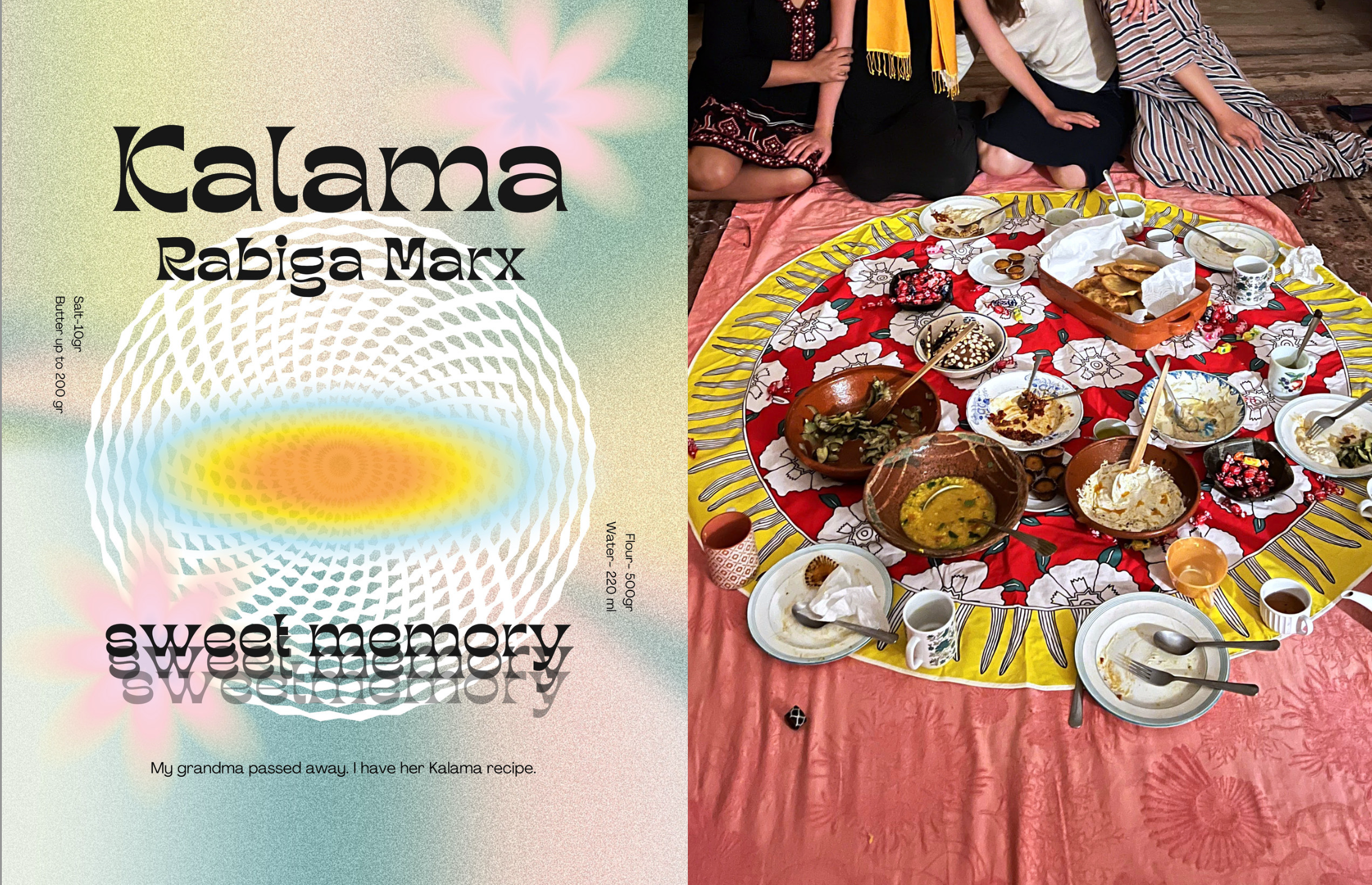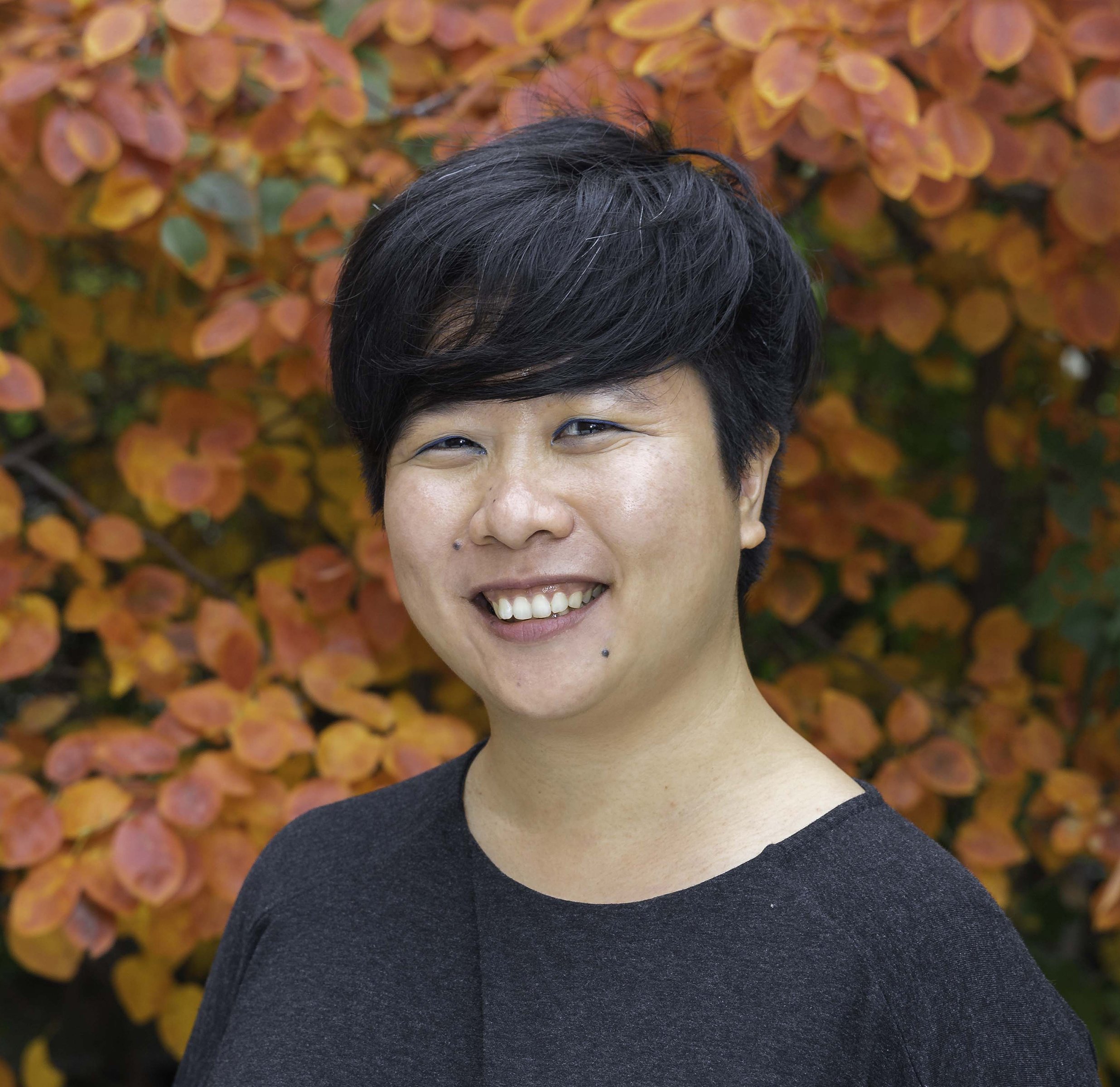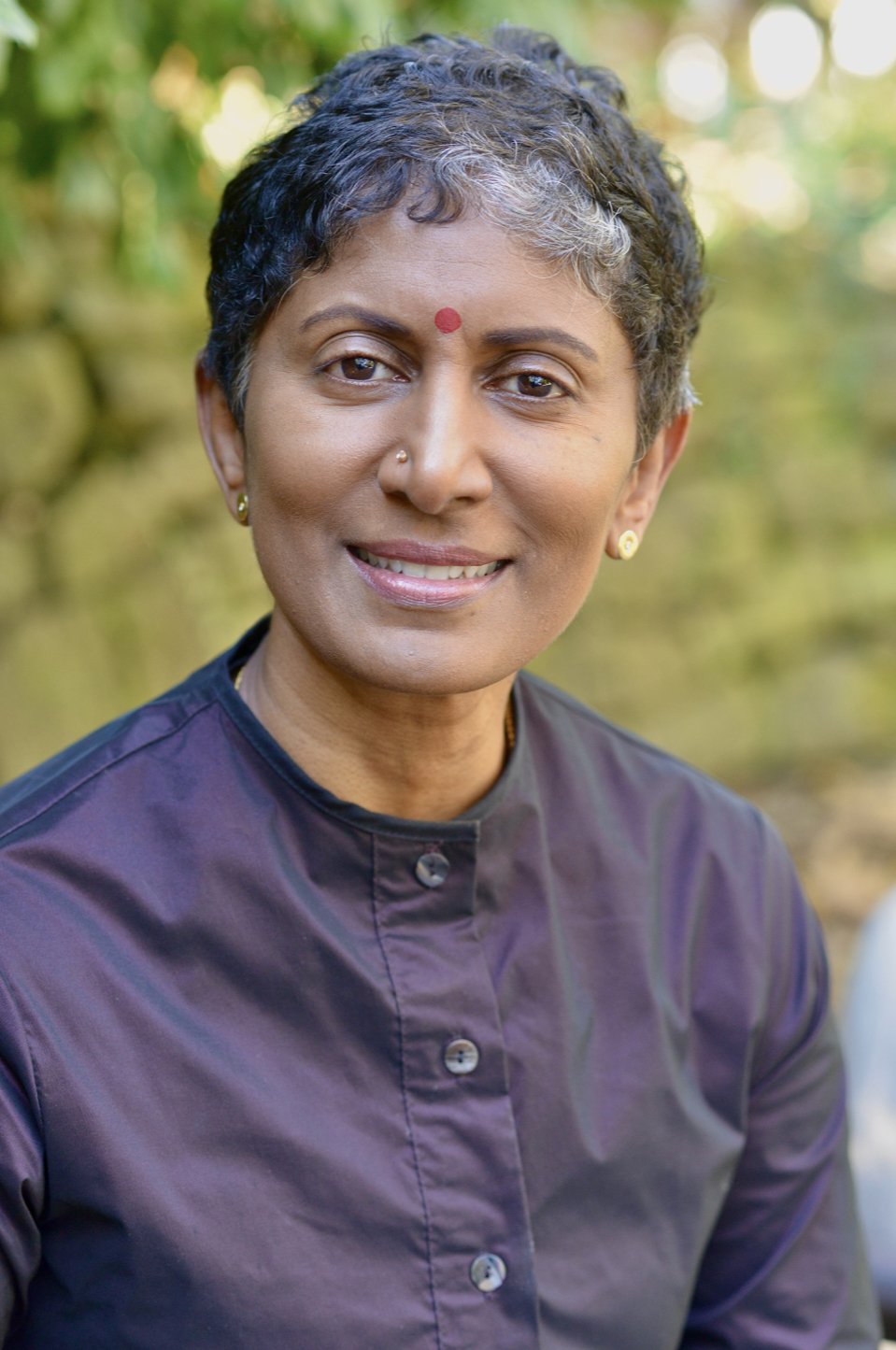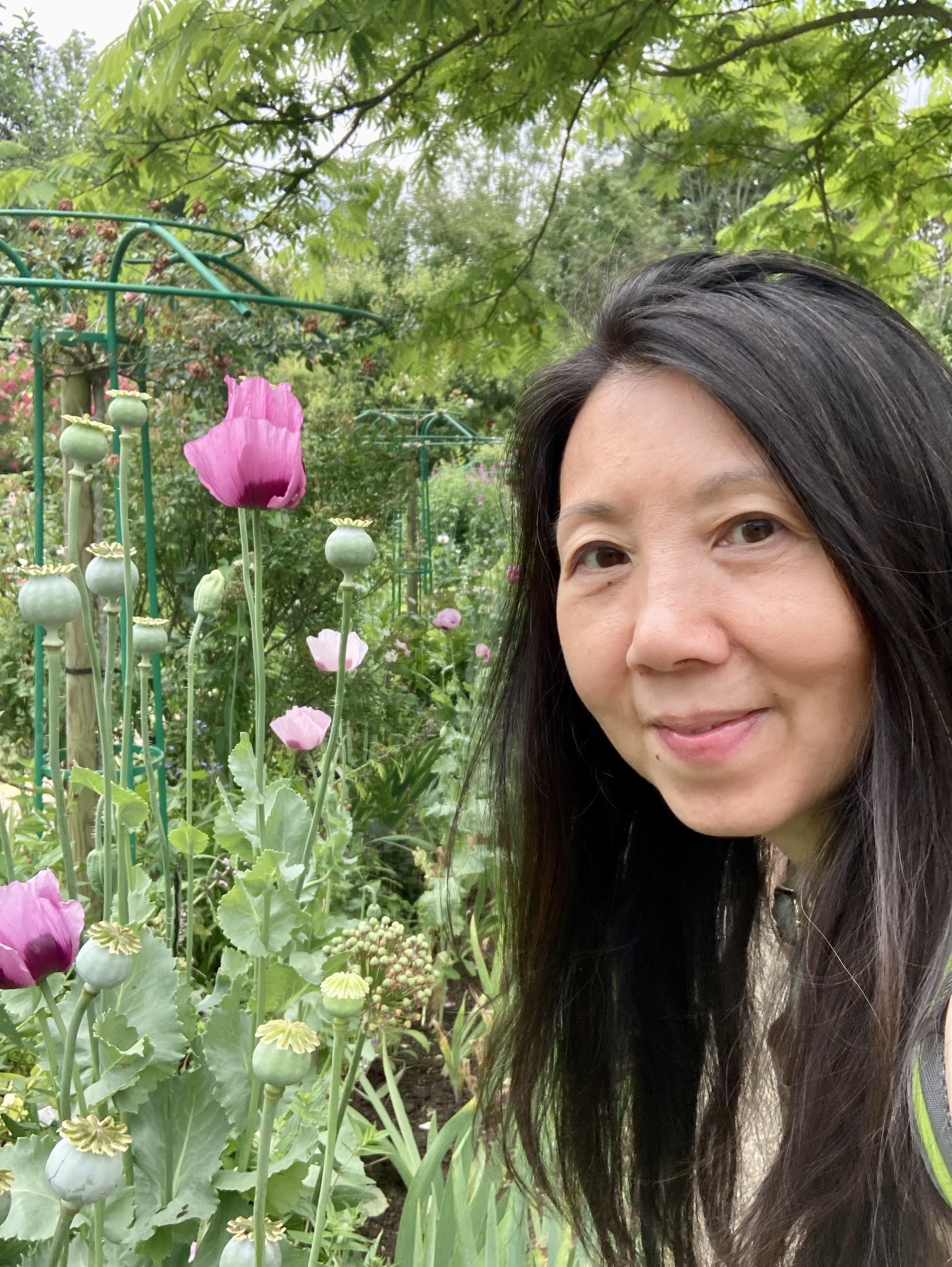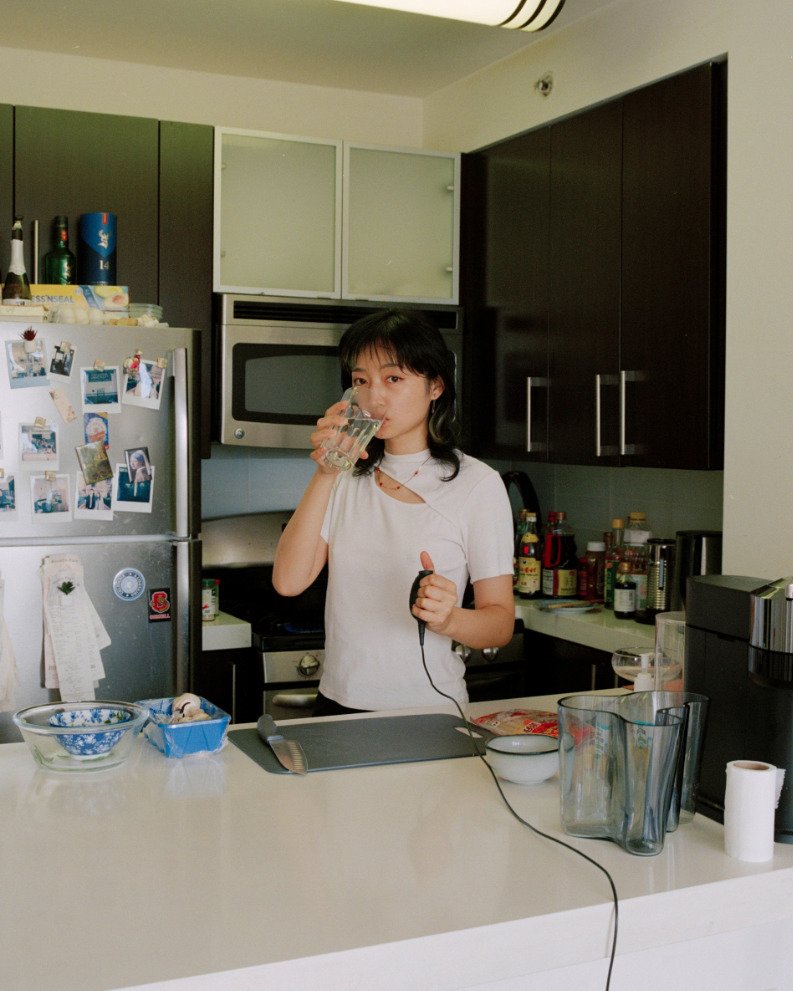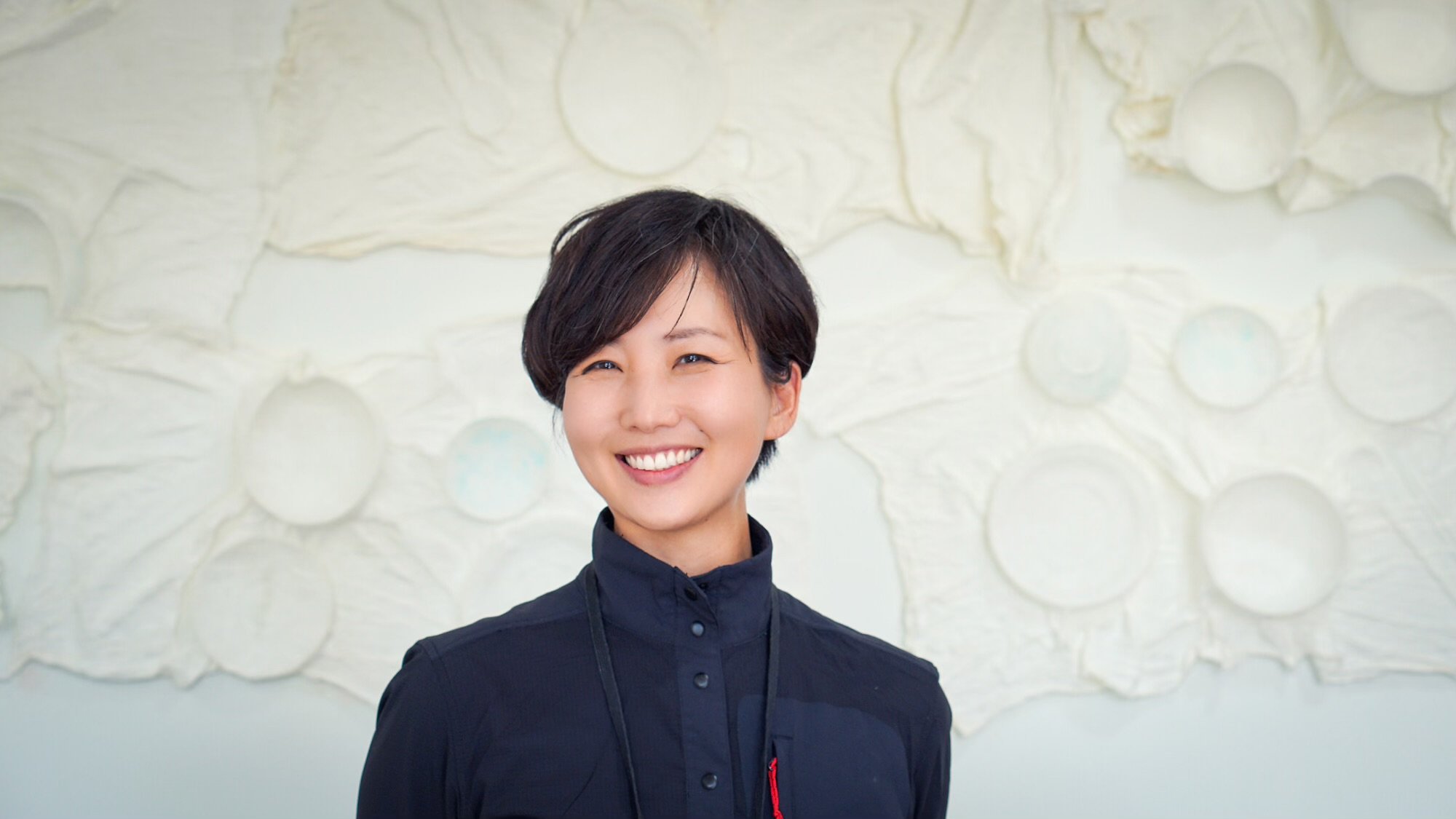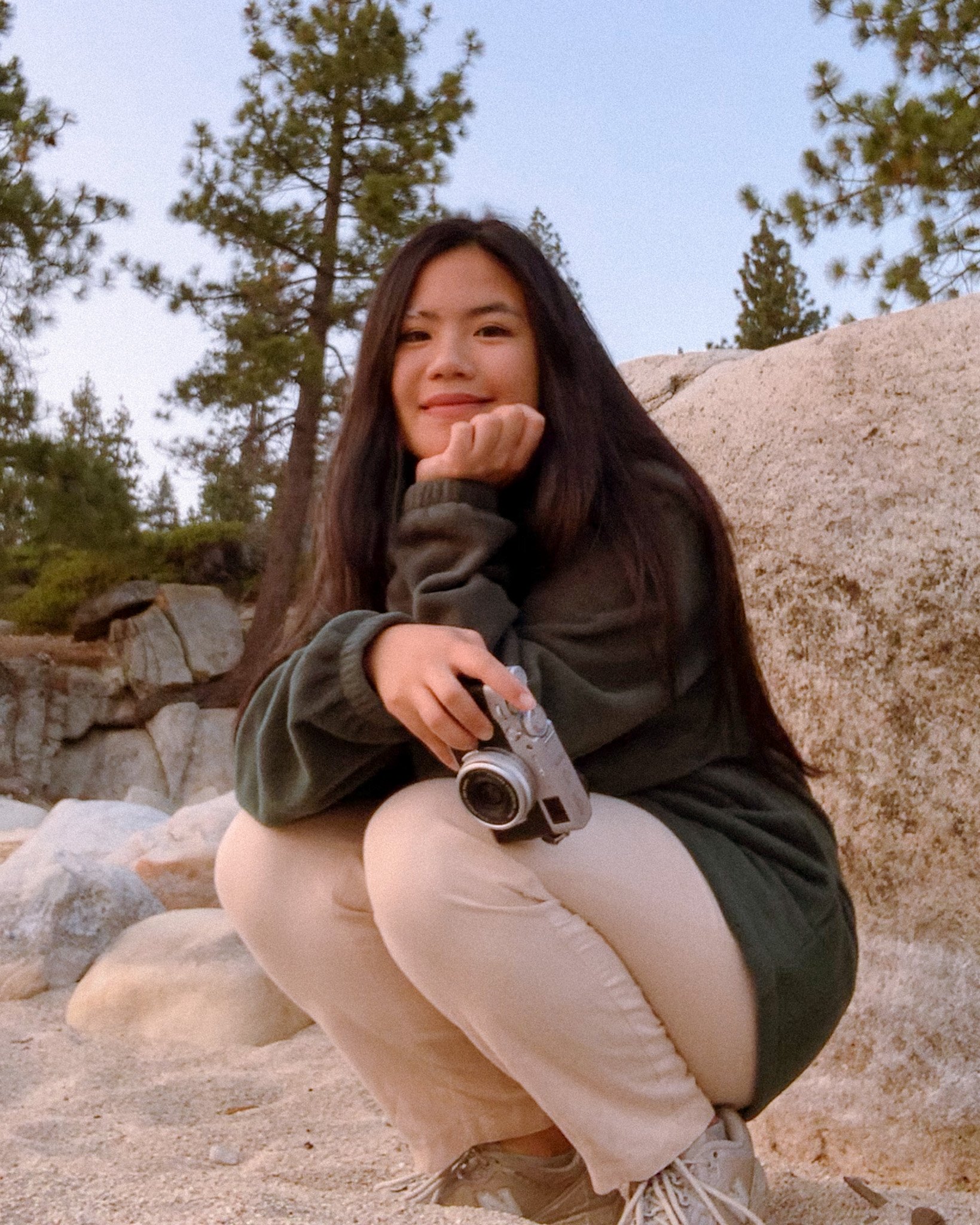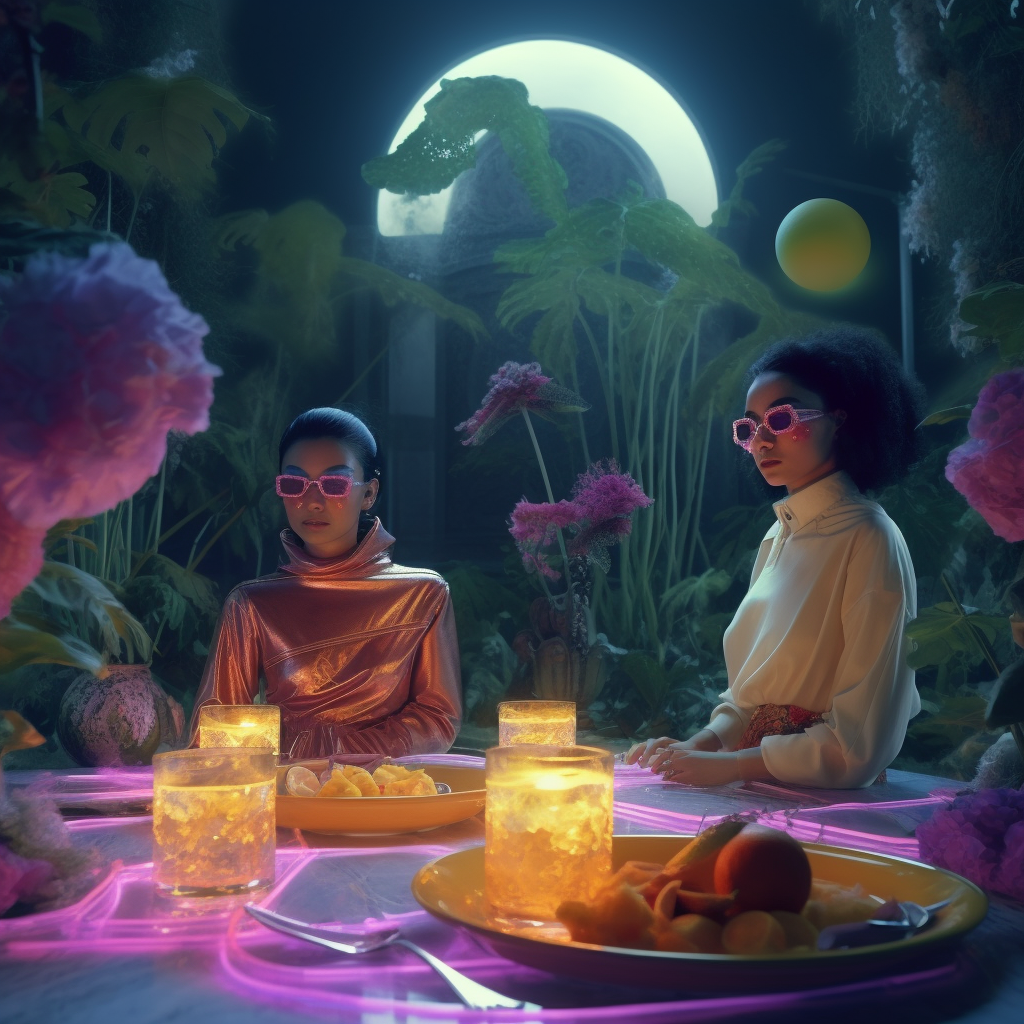
Asian Cookbook
Asian Cookbook
This Artists’ Book delves into food as a secret language of diaspora, a symbol of sisterhood, a source of community enrichment, and a counterforce to the undervaluation of culinary traditions, challenging food's role in shaping racial and cultural hierarchies. We collaborate with creators hailing from BIPOC and LGBTQIA+ backgrounds who share an affiliation with Asianness. Our project explores familial recipes, contributed by women and non-binary individuals within the family, emphasizing the integral use of various types of seeds. These culinary narratives become a conduit for communication within their respective families and communities. This endeavor draws its conceptual inspiration from the metaphor of seeds being sown within us through the transformative processes of cooking and consumption, presenting our bodies as vessels of migration and fertile soil.
The book connects culinary narratives with the storied tradition of tattooing - a symbol of resistance, an encrypted language, and a form of self-expression often utilized by marginalized groups throughout history. With roots in ancient cultures, tattooing has been a rite of passage, a sign of status or tribe, a form of punishment or stigma, and, importantly, a means of coded communication. The indelible ink on the skin became a vessel for personal and communal narratives, often silent yet powerfully visible. Like the seeds, symbols of potential and transformation, these tattoos carry stories embedded within our bodies.
Artists create drawings as tattoos for each recipe and accompanying story, transforming these culinary tales into a distinctive, handcrafted artist's book. This collaborative endeavor culminates in this artist’s book, as well as an immersive exhibition and live cooking performance, showcasing the rich tapestry of stories, flavors, and artistic expressions that define these shared culinary experiences.
Aurvi Sharma has received the NYFA Fellowship in Nonfiction and the AWP Kurt Brown Prize as well as awards from Gulf Coast, Prairie Schooner and Wasafiri. A Bread Loaf-Rona Jaffe Foundation Scholar, she has been awarded fellowships from Yaddo, MacDowell, Virginia Center for the Creative Arts, Santa Fe Art Institute, Tin House, and Sarai. Aurvi's work has been anthologised in the Best American Experimental Writing 2020 and her essays are notables in the Best American Essays. Her work has also appeared in Bon Appétit, Kenyon Review and Guernica, among others. Born and raised in north India, Aurvi is working on a memoir about River Yamuna and the disobedient women who once occupied its banks.
Melissa Joseph is a New York based artist and independent curator. Her work considers themes of memory, family history, and the politics of how we occupy spaces. She intentionally alludes to the labors of women as well as experiences as a second generation American and the unique juxtapositions of diasporic life. Her work has been shown at the Delaware Contemporary, Woodmere Art Museum, Utah Museum of Contemporary Art, Brattleboro Museum and Art Center, Jeffrey Deitch Projects, MOCA Arlington and List Gallery at Swarthmore College. She has been featured in Hyperallergic, Artnet, New American Paintings, Le Monde, CNN, and Architectural Digest and participated in residencies including Dieu Donné, Fountainhead, the Archie Bray Foundation for Ceramic Arts, the Museum of Arts and Design and upcoming at Greenwich House Pottery in 2023. She is a regular contributor to BOMB magazine.
Milagros “Mica” Verendia Coming from an international and multi-cultural background, Mica’s work ethos and approach reflects her values – inclusive, accessible and human-centered, with a creative flair for the narrative arts. With a degree in International Affairs, she set out to work in international civil service, and held several positions in communications at the United Nations. She then shifted to lending her skill set to the arts and cultural institutions. Today, Mica consult with both spheres, as well as social media figures with impactful objectives. Her work has reached millions of people globally, providing safe containers for healing, empowerment and mutual aid in vast landscapes, and have been translated into many different languages. Past clients include several agencies within the United Nations, Brooklyn Academy of Music (BAM), Community Organized Relief Efforts (CORE), Brooklyn Museum and Big Little Feelings, Inc. Mica is most interested in community care as praxis towards abolition. She has a strong interest in how humans connect, and the many-fold layers and modalities this involves. Her curatorial practice is founded on non-violent and accessible communication, which are all baked into the DNA of everything she does, mainly in service of mostly BIPOC and immigrant communities.
Gloria Lau 劉君蕙 (she/her) is a designer and visual artist based in Brooklyn with roots in Hong Kong and California. Her creative practice centers on co-designing places and visualizing stories to amplify marginalized narratives, illustrate collective imaginaries, and actualize community-led visions. Her professional experience in landscape architecture and urban planning focuses on public space, resilient infrastructure, and community-centered design. As a visual artist, she is also the co-founder of Laudi CoLab art collaboratives that document and illustrate undervalued stories in the built environment. Gloria merges art and archival research to explore the interplay of urban and natural landscape and the interlinks between spatial systems, culture, and identity. She is a Laundromat Project Create Change Fellow, a NEW INC member, a Bandung Resident, and an Urban Design Forum Forefront Fellow.
April Z is a neurodivergent person born in China. She has been an aspiring competitive gameplayer, a groupie-turned-bar-singer, a failed-new-media-artist, and started a DIY project space called Tutu Gallery in Brooklyn. During her free time, she likes to take walks, swing, and google anything that comes up in her mind. Her special interests include contemporary art, psychology, and affective labor. She is good at bantering, writing, touching, and making things happen.
Louise Yeung 楊浩怡 (she/they) strives to envision and build a better world as an urban planner and visual artist of the Hong Kong diaspora. Through printmaking and painting, Louise explores migratory relationships and collective memories among people, plants, and animals who transform new environments to call home. Louise’s creative practice is shaped by her vocational work in climate policy and organizing. Louise is a 2023 Bandung Resident, a program through MoCADA and Asian American Alliance for the Arts through which she is documenting Black and Asian traditions of herbal healing to foster new forms of community care. Louisse is also an Advisory Board member of the Octavia Project, which uses the creative power of speculative fiction, art, and science to engage femme and nonbinary teens in imagining greater possibilities for our future.
Born in Minna, China, and based in Lenapehoking (Brooklyn), Fei Li is an interdisciplinary artist whose artistic practice revolves around community-led and collaborative public rituals, drawing on ancient wisdom while addressing contemporary concerns to foster a more interconnected society. The essence of her work lies in challenging conventional forms, narratives, and Western frameworks by leveraging the transformative potential of alternative media and collective efforts.
Li is the awardee of numerous funded artist's residencies, fellowships, and grants, including the 2023 Create Change Fellowship of Laundromat project, the 2021 Milton and Sally Michel Avery Residency for a Visual Artist at Yaddo, the 2017 Jon Imber Painting Fellowship at Vermont Studio Center; City Artist Corps Grant and Queens Arts Fund New Works Grant. She founded the collaboration platform Accented Projects, which seeks to transcend boundaries, foster collective action, and catalyze social change.
Dr. Yamuna Sangarasivam is professor of anthropology and director of the Women & Gender Studies Program at Nazareth University. She engages her interdisciplinary training in musicology, dance ethnology, cultural-political anthropology, transnational feminist and queer epistemologies and ontologies to inform her studies of terrorism, nationalism, resistance, and the politics of race. Her book, Nationalism, Terrorism, Patriotism: A Speculative Ethnography of War (2021) was published by Palgrave Macmillan. Inspired by her parents and grandparents to honor an ever-evolving transnational sense of self rooted in Tamil Eelam along with an awareness of ourselves as ecologically interdependent living beings, her recent scholarly and artistic endeavors in the study of food cosmogonies invites her to journey into the fabulatory arts of culinary worlding to build solidarities across space and time.
Pacyinz Lyfoung, an Asian American poet, attorney, and activist, presents an intersectional narrative marked by her Hmong roots and dual French and American cultural heritage. Her trajectory from her birthplace in France to her growth and evolution in Minnesota offers a panoramic view of her life's journey.
Bilingual in French and English, Pacyinz carries the relics of her family's diasporic experiences imprinted in her linguistic finesse. This distinct heritage frames her artistic endeavors, colored by her steadfast journey to master her ancestral Hmong language. Her poetry has been her bridge to her family and community legacies, especially that of her paternal grandfather, Phagna Touby Lyfoung. The story of Touby and his family reflects the story of the Hmong People finding pathways to full integration into their homelands, whether the Kingdom of Laos or the United States: breaking new grounds, making the Hmong name sound far and wide, and being of service to their homelands is the legacy of Phagna Touby Lyfoung, who was bestowed the title of "Lord Whose Name is Heard from Far Away" by the King of Laos.
Pacyinz's involvement in artistic projects is characterized by a deep-seated delight and a belief in the transformative power of collective creativity to shape a more compassionate world. She is at an exciting juncture in her career, poised to publish her first poetry collection—fulfilling one of her late father's wishes. She is currently based in Washington-DC.
Sidian Liu is a photo-based artist, translator, and home builder. She makes images, performance, installations to build a sanctuary for personal and collective emotions triggered by the ever-shifting contemporary world. Leading a liquid, fragmented urban life, she seizes photography as a means to construct or subvert, to create a safe space in response to the issue of displacement. A lot of her works are participatory and interactive, establishing a space to feel belonged through exchanging energy with the audience.
Sidian is the recipient of Top 10 of 9th Annual Photography Rankings in China, 2022, “Kunpeng Award" of China Young Photographer Promotion Plan, the 21st Pingyao International Photography Festival, 2021, the top prize of First Female Photographer Competition by Miroir Project, 2021, and the top prize of Banshan Photography Award, 2020, etc. Her translation works have been published on LEAP. She has also translated for Hangzhou Triennial of Fiber Art, and various art institutions, Pro Helvetia Shanghai, Shanghai Minshenng Art Museum, Wu Space, Aranya Art Center etc.
Peach Tao is a Brooklyn-based muralist, teaching artist and illustrator. Born and raised in Beijing, China, she received a BFA in illustration and printmaking from Savannah College of Art and Design. In the summer of 2020, she paired up with local activist Karlin Chan to breathe life into the Chinatown Mural Project. Their vision was to usher vibrancy and renewed energy into Manhattan's Chinatown through the creation of evocative murals that embody Chinese American life. Their endeavor, designed to reinvigorate local businesses and draw people back into the neighborhood, was met with acclaim and earned widespread recognition, including features on CBS News and NY1.
Peach's broad artistic impact is further demonstrated through her collaborations with numerous organizations like NYC Health+Hospitals, ThriveCollective, Groundswell, The LISA Project, East Village Walls, and The Bushwick Collective. Their shared mission—to beautify New York City's public schools and spaces—harmonizes seamlessly with Peach's passion for utilizing art to transform communal spaces.
Peach is her nickname because her family name (陶Tao) shares the same pronunciation of Peach(桃Tao)in Chinese.
Sammy Lee (b.1975 Seoul, Korea) studied fine art and media art at UCLA and architecture at the University of Massachusetts Amherst. Her artwork has been exhibited internationally and is in collections at the Getty Research Institute, Denver Art Museum, and the Spanish National Library in Madrid. Among her many accomplishments, highlights include a performative collaboration with Yo-Yo Ma during the Bach project tour in 2018. Lee is a Fulbright US scholar to S. Korea for 2023-2024 and the founder of a contemporary art and residency space called Collective SML | k in Santa Fe Art District, Denver. Sammy Lee’s art merges traditions of craft and installation while employing her Eastern and Western identities. Her work blends spatial, human, and temporal boundaries by deploying various materials and processes—paper, sumi ink, books, rubbings, sculpting, and architecture.
Rabiga Marx is a Berlin-based artist and researcher with roots in Kazakhstan and Kyrgyzstan. She identifies as a "Nomadic Art(ist) Historian," embodying a conduit role that connects diverse cultural spectra.
Marx's primary focus revolves around the identities of contemporary artists from Central Asia, illuminating their nuanced roles within the global art milieu. Her work is a junction for differing cultural paradigms and temporalities, creating a dialogue between tradition and modernity, familiar and foreign.
Driven by her personal experiences of straddling varied cultural landscapes and timeframes, Marx's investigations and creations explore identity construction among "glocal" artists in the global art scene. Her perspective is keenly interested in the interplay of cultural memory within these contexts.
Marx's commitment to decolonization further challenges conventional narratives, dismantling embedded hierarchies and actively facilitating a more inclusive understanding and representation of artists in the global art community.
Director/Curator/Editor of the Book
Victoria Romulo is a Filipina-American photographer based in Brooklyn, New York.
Born in Manila, Philippines, and then moved to Chesapeake, Virginia at the age of 8, Victoria's immigration experience left her yearning for the person she would have been if she had never moved, and curious about the people she could have become had her parents picked any number of different cities. Today she expresses those feelings through her photography: seeing the possibilities of people she could have become in everyday moments, objects, and strangers — giving her work a cinematic and romantic lens.



